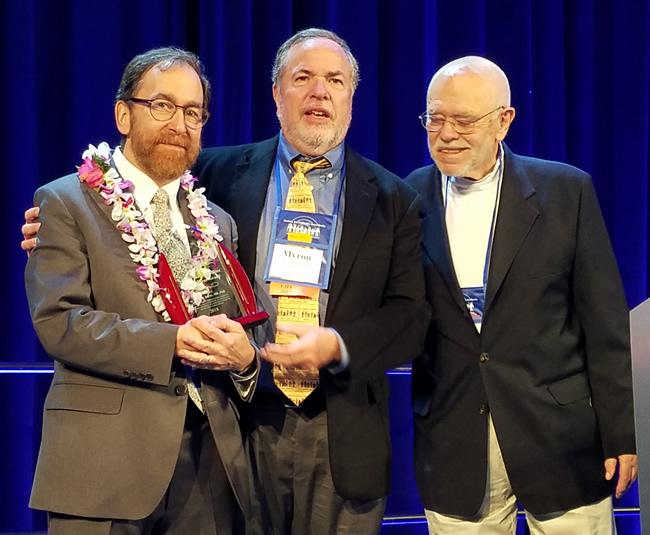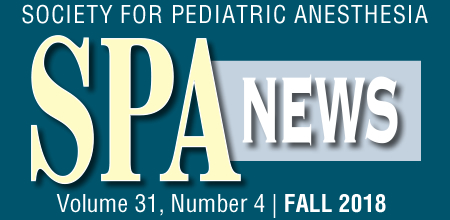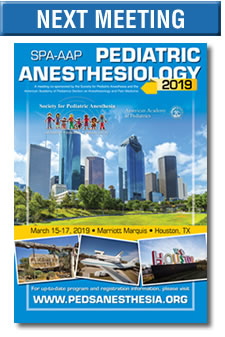meeting reviews
Session III: SPA Myron Yaster Lifetime Achievement Award

Dr. Charles B. Berde (left) receives the SPA Myron Yaster Lifetime Achievement Award from Dr. Yaster and Dr. George Gregory (right)
By RJ Ramamurthi, MD, FRCA
Stanford University School of Medicine
and Lucille Packard Children's Hospital
Congratulations to Charles B. Berde, MD, PhD for receiving this year’s SPA Myron Yaster Lifetime Achievement Award. The ceremony started in a Hawaiian tradition with a colorful garland adorning the neck of Dr. Berde.
Dr. Berde is the Sara Page Mayo Chair in Pediatric Pain Medicine, Chief of the Division of Pain Medicine at Boston Children's Hospital, and Professor of Anaesthesia (Pediatrics) at Harvard Medical School. He received his MD and PhD degrees from the Stanford University School of Medicine. He completed residencies in pediatrics at Boston Children’s Hospital and anesthesia at Massachusetts General Hospital and fellowship in pediatric anesthesiology at Boston Children's Hospital.
He holds numerous awards, including the Distinguished Career Award in Pediatric Pain by the International Association for the Study of Pain Special Interest Group on Pain in Childhood, The Jeffrey Lawson Award from the American Pain Society, and Scientific Achievement Award of the Reflex Sympathetic Dystrophy Syndrome Association. He was also profiled as one of Time Magazine’s “Heroes in Medicine.”
Introducing the awardee, Dr. George Gregory highlighted the credentials of Dr. Berde, which includes a five-specialty expertise with four board certifications. He further detailed the amazing contributions by Dr. Berde to the field of pediatric anesthesia including translational research on a novel long acting local anesthetic, clinical research contributions in the field of CRPS and chronic pain, and extensive pharmacologic research on local anesthetics and opiates.
Dr. Berde in his “little longer than Oscar timed" acceptance speech, fondly remembered all his mentors and shared cherished moments in his career. In his words, the three things pediatric anesthesiologists should focus on include general anesthetics, local anesthetics and their roles in neurodevelopment; understanding and managing amplifying factors for acute pain in the perioperative setting; and finally mentoring and growing a future generation of leaders in our field."






